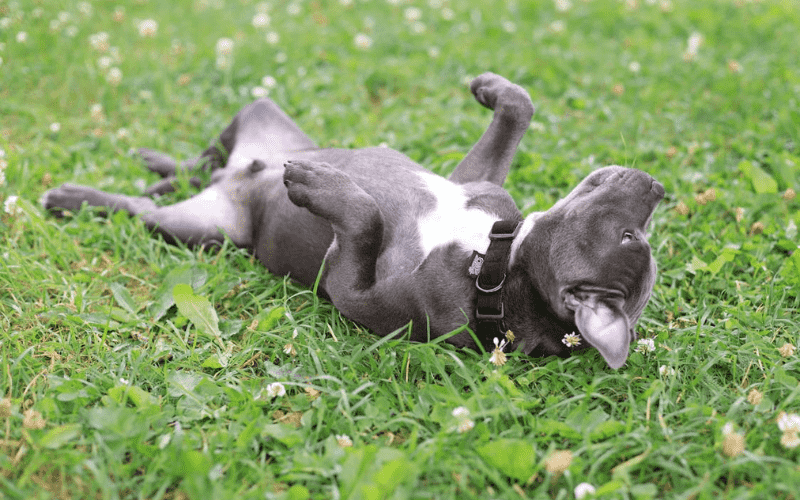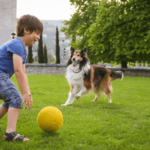- Do Birds Have Tongues? - 14 July 2025
- Can Dogs Swim at Washington Park Denver? - 10 July 2025
- Can Dogs Eat Sardines in Olive Oil? What You Need to Know - 22 June 2025
Dogs are loyal companions and for many of us they’re not just pets – they’re integral members of the family. These integral family members of ours often enjoy spending long hours outdoors. The American Kennel Club claims that a activyl for dogs can spend 10 to 30 minutes outdoors every day depending on its breed and the weather. Some dogs tend to spend even longer periods outdoors. However for these dogs the risk of flea bites and infestations becomes a significant concern.
Fleas Pooch
Fleas can cause your pooch a lot of discomfort. According to PetMD flea bites can lead to allergic reactions in dogs. Fleas can also transmit parasites like tapeworms. They can also control to various other health issues in your dog. Therefore as responsible pet owners. It’s crucial to implement effective strategies to keep these persistent pests at bay. Here are a few practical ways to deal with fleas for dogs that spend extended periods outdoors.

Regular Grooming and Inspection
One of the fundamental aspects of flea control and prevention is maintaining proper grooming habits for your outdoor dog. Frequent brushing helps detect flea symptoms early on and keeps your dog’s coat lustrous and clean. Pay close attention to areas where fleas tend to hide such as behind the ears on the neck and around the tail. If you notice any signs of flea dirt like tiny black specks that resemble pepper larvae or live adult fleas take immediate action.

While grooming use a flea comb to remove any adult fleas eggs or larvae. Flea combs have fine teeth that can catch and pull out these pests preventing them from establishing a foothold on your dog. Combine grooming with a thorough inspection to catch any infestation in its early stages making it easier to manage.
High-Quality Flea Preventatives
Investing in a reliable flea preventative is a crucial step in protecting your outdoor dog. See your veterinarian to find the best product for the unique requirements of your dog. Topical remedies work well to both kill and repel fleas when applied to the back of the neck. Oral medications available as chewable tablets or treats work systemically to eliminate fleas when they bite your dog. Also according to Pet Care Rx you can use flea collars to prevent flea infestations. These collars release chemicals that repel and kill fleas providing long lasting protection.
It’s essential to choose a high quality collar that suits your dog’s size age and health condition. You should also use something that’s specifically designed to provide waterproof outdoor protection. Activyl for dogs is one such collar that can provide maximum protection from fleas and ticks especially in outdoor conditions. Its active ingredient spreads into your dog’s fur and provides a protective barrier from fleas.
Environmental Management
Fleas don’t just infest your dog. They can also lurk in your home and yard waiting for an opportunity to hitch a ride on your furry friend. To effectively deal with fleas focus on environmental management as well. Vacuum your home often and use hot water to wash your dog’s toys and beds to get remove of any flea eggs or larvae. In the yard keep the grass short and trim bushes and shrubs where fleas might hide. Nematodes which are minute worms that consume flea larvae may be used to organically manage flea numbers in your outdoor area.
Regularly treat your outdoor environment with pet safe insecticides to create a barrier against fleas. Combining these measures with your dog’s preventative flea treatment ensures a comprehensive approach to flea control. According to Clean North using fewer lawn chemicals can reduce harm to your pets as well as ecosystems. Therefore avoid using too many inorganic chemicals in your lawn or yard.
Natural Repellents and Remedies
Fleas can be repelled by a number of natural repellents and home cures for pet owners who want a more organic approach. Essential oils with proven flea repelling qualities include eucalyptus, lavender and cedarwood. Create a DIY flea spray by diluting these essential oils with water and spraying it on your dog’s coat.
Ensure that the concentration is safe for your dog’s skin and consult with your veterinarian before using essential oils on your pooch. Another natural remedy is the use of diatomaceous earth. A fine powder that dehydrates and kills fleas on contact. Sprinkle diatomaceous earth in areas where your dog frequents such as bedding and outdoor resting spots.
Regular Bathing with Flea Repellent Shampoos
Bathing your dog with a high quality flea repellent shampoo is an essential part of flea prevention. Look for shampoos containing natural ingredients like neem oil, tea tree oil or oatmeal. Which have proven flea repelling properties. Regular baths not only keep your dog clean but also help wash away any existing fleas and their eggs.
Ensure that you follow the recommended bathing frequency for your dog’s breed and coat type. Over bathing can strip your dog’s coat of natural oils. Leading to skin dryness and potential irritation. Pair regular bathing with a consistent grooming routine to maintain optimal skin and coat health while keeping fleas at bay.
Proper Nutrition for Flea Resistance
Maintaining a nutritious food is crucial for your dog’s general health and immunity against fleas. Provide your outdoor canine companion with a balanced and nutritious diet that supports a strong immune system and a healthy coat.
Rich in fatty seafood such as salmon omega 3 fatty acids support healthy skin and can help deter fleas from attaching themselves to your dog. The best diet for your dog’s unique requirements will be determined after consulting with your veterinarian. In some cases dietary supplements or specialized flea resistant diets may be recommended to enhance your dog’s natural defenses against fleas.
Also Read: Can Dogs Eat Cooked Crab Meat?
Regular Vet Checkups
Regular veterinary checkups are need for monitoring your dog’s health and catching any potential flea infestations early on. Your veterinarian can conduct thorough examinations recommend appropriate preventative treatments and address any health concerns that may make your dog more susceptible to fleas.
Also discuss your dog’s outdoor lifestyle with your veterinarian to tailor a flea prevention plan that suits their specific needs. Factors such as your dog’s age size breed and overall health be considered when determining the most effective approach to flea control.
Wrapup
Ensuring the well being of dogs that spend long hours outdoors involves a comprehensive and proactive approach to flea prevention. From regular grooming to the use of high quality flea preventatives. These strategies collectively form a robust defense against fleas. You can give your outdoor loving dog partner a happy healthy and flea free life by adopting these everyday behaviors.
















